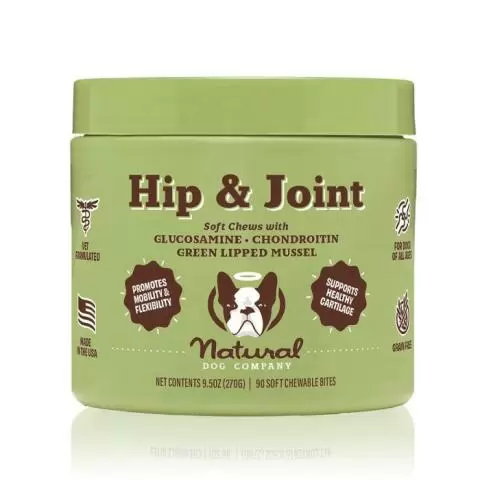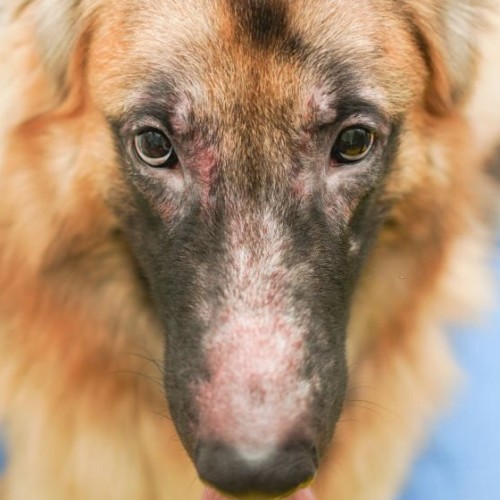Probiotics can be a fantastic method to control and alleviate allergic skin conditions in cats as well as dogs. Probiotics are beneficial bacteria that help maintain an optimal gut microbiome which is in turn, helps support the overall immune system as well as skin health. Probiotics can reduce the severity of allergic skin conditions in dogs:
Immune System Regulation
Balanced Immune Reaction:
Function: Probiotics regulate the immune system by promotion of good bacteria in the gut, and the reduction of harmful bacteria.
Benefits: An immune system that's well-balanced can decrease hypersensitivity, which contributes to allergies. This helps to minimize the severity and frequentity of allergic reactions.
Inflammation Reduction
Anti-inflammatory Effects:
Function: Certain strains of Probiotics are able to reduce inflammation and release antiinflammatory chemicals.
Benefits - By reducing the systemic swelling, probiotics are able to ease itching, inflammation, as well as other signs of allergic reactions.
Gut-Skin Axis
Improved Gut Health:
Function: The gut and skin axis are the connection between gut health and skin health. Probiotics have been proven to boost digestion health and gut barrier function.
Benefits: A healthy gastrointestinal tract will help to stop the leaking into the bloodstream of allergens and chemicals that could trigger skin reactions. Additionally, it can reduce the signs of skin allergy.
Strengthening Skin Barrier
The Enhanced Skin Barrier feature:
Function: Probiotics can influence the production of ceramides and other lipids that are essential to maintain a healthy skin barrier.
Benefits: A healthy skin barrier shields you from allergens from the environment and reduces allergic reactions and skin infections.
Allergy Symptom Management
Pain Relief:
Function: Probiotics assist in reduce symptoms by controlling histamines, and other chemicals that are involved in allergic reactions.
Benefits: It reduces the irritation, itching and discomfort caused by skin allergies in dogs.
More Microbial Diversity
Increased Microbial Variety:
Function: Probiotics increase the diversity of gut microbiome that is crucial to have a healthy immune response.
Benefits by preventing the overgrowth of harmful bacteria, which could cause allergies, a diverse microbiome is able to better support your overall well-being.
Specific Probiotic Strains
Lactobacillus and Bifidobacterium They are two commonly used probiotic strains which have been shown to be efficient in managing skin allergies in pets.
LactobacillusrhamnosusGG: This strain is well-known for its ability to decrease symptoms of allergies and improve gut health.
Bifidobacterium Animalis reduces inflammation and boosts the immune system.
Use and factors
Dosage & Administration: The right dosage of probiotics will be based on the pet's weight, size and needs for health. It is crucial to follow the recommendations of your veterinarian or the product label instructions.
Formulations Probiotics can be found in various forms for dogs such as capsules, powders and chews. It is essential to select an excellent, pet-specific brand to ensure the safety and effectiveness.
Monitoring and side effects: Although probiotics are safe in general, it's important to monitor your pet for reactions that could cause digestive upset. Start with a smaller dose and gradually increasing it can reduce the risk of adverse effects.
Conclusion
By controlling the immunity system, reducing swelling, improving skin barrier and overall health of the gut, probiotics assist in reducing skin allergies. Regular use can result in an improvement in allergy symptoms. They also help to promote healthy skin for pets as well as a higher level of quality of their life. View the top rated best vitamins for dogs for website examples including pet liver supplements, pet cbd supplements, pet supplements for pets with car anxiety, pet supplements for breeding dogs and cats, pet supplements for pets with fear of stairs and steps, pet supplements for show dogs and cats, pet dental health, pet willow bark supplements and more.

Astragalus, A Remedy For Natural Causes For Kidney Problems In Dogs And Cats.
Astragalus (a herb commonly used in Chinese medicine) has shown that it can assist cats and dogs with kidney disease because of its anti-inflammatory antioxidant and immunomodulatory properties. Astragalus is a powerful herb which can be used to treat kidney failure in dogs and cats. Its anti-inflammatory, antioxidant and immunomodulatory properties are beneficial.
Anti-inflammatory Properties
Reduce inflammation
Astragalus is a plant that contains saponins and flavonoids. These compounds possess anti-inflammatory properties.
Benefits: Lowering inflammation in the kidneys helps to slow the progress of kidney disease. It also eases the symptoms. This improves the overall function of kidneys.
Antioxidant Effects
Reduction of Oxidative stress:
Astragalus: Astragalus is an antioxidant with potent properties. It neutralizes free radicals and prevents cellular damage.
Astragalus benefits include by reducing stress-related oxidative, it protects the kidney cells from damage. This helps improve kidney health and reduces the progression of diseases.
Immunomodulation
Immune System Support:
Astragalus modulates immune system to increase its capability to fight off infections and reduce autoimmunity.
Benefits: A well-balanced immune system can prevent infections and reduce the autoimmune reactions that could cause kidney damage in certain pets.
Improve Kidney Function
Improvement of Glomerular Filtration Ratio (GFR)
Astragalus may improve kidney function. This is due to the fact that it increases the rate of glomerular filtering or the rate at which kidneys remove blood.
Benefits Improved filtration aids in helping the kidneys to eliminate waste more effectively. This may help alleviate the symptoms of renal impairment and improve overall health.
Anti-fibrotic Effects
Prevention of Kidney Fibrosis
The function: Astragalus has been shown to have anti-fibrotic properties which prevent the development of scar tissue in the kidneys.
Benefits: Reduced fibrosis is vital for maintaining the function of kidney tissue in dogs suffering from chronic renal disease.
Cardiovascular Support
Assistance for Cardiovascular Health
Effect: Astragalus can help improve cardiovascular health by supporting healthy blood pressure and heart function.
Benefits: A healthier cardiovascular health could reduce the burden on kidneys and boost overall health. This is especially important for pets who have kidney problems.
Diuretic Effects
Urine Promotion of Flow
Astragalus has mild diuretic properties, which can help to boost the flow of urine. It also aids in the elimination and excretion of waste products.
Benefits: Increased urine flow helps manage fluid balance, reduce the build-up of toxins and improves kidney health.
Use and Considerations
Dosage and Administration: The correct dosage of Astragalus will depend on the pet's size, weight and health requirements. It is crucial to follow a veterinarian's recommendations, as they can provide guidance on the correct dosage and type of Astragalus (e.g. capsule, capsules, tincture or powder).
To ensure the safety and effectiveness ensure safety and effectiveness, choose high-quality Astragalus supplements that have been tested and standardized. It is best to select supplements specifically designed specifically for your pet.
Astragalus has a generally positive safety profile, however some pets can experience gastrointestinal upset. Beginning with a lower dose and increasing it gradually, you can minimize side consequences. Veterinarians must regularly check on their pets to make sure they're responding to the supplement. This will enable them to adjust dosages if required.
The conclusion of the article is:
Astragalus supplements can help to manage kidney disease in dogs and cat. Its antioxidative, antiinflammatory, immunomodulatory and anti-fibrotic effects aid in maintaining kidney function and health. Astragalus when under the supervision of your physician can help improve kidney function, slow the process of progression, and increase the symptoms of kidney disease. Follow the recommended more for website info including pet joint supplements, pet lemon balm supplements, pet milk thistle supplements, pet bromelain supplements, pet digestive health, pet supplements for pets with fear of other animals, pet supplements for pets with joint pain, pet supplements for pets with car anxiety and more.

Apple Cider Vinegar Can Be Used To Treat Yeast Infections In Dogs And Cats.
Apple cider vinegar (ACV) is sometimes recommended as a natural treatment for yeast infections in dogs and cats. ACV could have some advantages but, despite anecdotal reports and studies that show the use of ACV can be beneficial, it must be administered under the supervision of a veterinarian due to ACV's acidic properties and adverse consequences. ACV aids in the treatment of yeast infections.
Antifungal Properties
Acidic Environment
ACV is a liquid with a pH range of 2.5 and 3, which is considered to be acidic. This acidic atmosphere can cause an unhospitable environment yeast growth.
Benefits The application of diluted ACV topically or incorporating it into your bathwater of your pet may decrease the growth of yeast on the skin and in ears.
Skin pH Regulator
Balancing Skin pH:
Function: ACV is believed to aid in balancing the pH of skin levels, which may help support the health of the skin barrier and inhibit yeast growth.
Benefits: Maintaining proper pH levels in the skin can help prevent yeast infections and enhance overall health of the skin.
Anti-inflammatory effects
Reduce Inflammation
Function: ACV has mild anti-inflammatory properties.
Benefits: Reducing swelling can help alleviate symptoms associated with yeast infections such as irritation, discomfort and the appearance of redness.
Support for Digestive Health
Internal Use
ACV promotes digestive health when consumed in small quantities.
Benefits of a more healthy gut environment: By supporting the immune system and maintaining microbial equilibrium, a healthier gut environment can indirectly decrease yeast overgrowth.
Use and considerations
Topical Application - dilute ACV (typically 1 part of ACV to 2 parts water) by adding water. Apply to rinse, spray or ointment to the affected areas. Avoid applying ACV directly on open skin wounds or other sensitive places.
Internal Use: If you're thinking of using it internally, consult a doctor first. ACV should always be diluted with water (e.g. 1 teaspoon or 1 tablespoon per cup) and taken in small dosages.
If you apply ACV topically watch for any reactions to irritation or allergic reaction. If you experience any negative reactions, discontinue using ACV.
Consultation with a Veterinarian Before using ACV as a treatment for yeast infections, it is recommended to consult your veterinarian. Your veterinarian will advise you on the most effective method of dilution, how to apply it, and any potential risks depending on your pet's health.
Click here to read the complete article.
Apple cider vinegar can be used to treat yeast infections in dogs and cats However, it should be administered under the supervision of a vet. ACV's acidic qualities can impede yeast growth in the ear as well as on the skin. ACV may also provide moderate anti-inflammatory benefits. Proper dilution, and careful application are essential to avoid the risk of irritation or adverse reactions. ACV treatment is safe in the presence of veterinary guidance. View the best pet wellbeing australia blog for more tips including natural pet supplements, pet omega-6 supplements, pet hemp supplements, pet quercetin supplements, pet hesperidin supplements, pet supplements for shelter pets, pet quercetin supplements, pet bromelain supplements and more.
